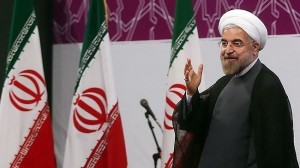 HAVANA, Aug 5 (BERNAMA-NNN-MERCOPRESS) -- New Iranian President Hassan Rouhani met in Tehran on Sunday with Cuban Vice President Ricardo Cabrisas and said his country wanted to expand its relations with Latin America, "especially with Cuba," Iran's Isna news agency reported.
HAVANA, Aug 5 (BERNAMA-NNN-MERCOPRESS) -- New Iranian President Hassan Rouhani met in Tehran on Sunday with Cuban Vice President Ricardo Cabrisas and said his country wanted to expand its relations with Latin America, "especially with Cuba," Iran's Isna news agency reported.Cabrisas traveled to Iran for Rouhani's inauguration on Sunday.
Rouhani told the Cuban official that he considered the economic ties between Iran and Cuba "important," Isna said.
Rouhani, a moderate Shiite cleric, said in his inaugural address that he planned to pursue constructive relations with the international community, improve Iran's economy and resolve the nuclear issue.
"Transparency is the key to open the doors of trust" with other countries, Rouhani said after taking the oath of office before Parliament.
"Iran has never sought war with the world and we will focus on stopping those who seek war," the new president said, referring to warnings from the United States and Israel that the use of military force was an option in stopping Tehran's nuclear programme.
Latin diplomatic observers said Teheran has close political, military and trade relations with Cuba, Venezuela, Ecuador and Bolivia. The great boost to the links came under former Venezuelan president Hugo Chavez who visualized the two countries fighting "US imperialism".
Brazil under Lula da Silva supported Iran's right to develop its nuclear technology for peaceful purposes, and together with Turkey tried to broker an agreement with western powers, and which collapsed from the very start.
Under Dilma Rousseff, the issue of human rights and the way women are treated have distanced the two countries.
With Argentina things have changed radically: Buenos Aires and Teheran signed a controversial memorandum of understanding (MOU) to try and resolve the 1994 bombing of a Jewish institution in Buenos Aires, which killed dozens, but which has been strongly criticized by the opposition, and local and overseas Jewish organizations.
The controversy lies on the fact that prosecution and intelligence reports indicate that the attack was masterminded by the Iranian Revolutionary Guard and Hezbollah and executed by locals. Teheran rejects point blank such suggestion but under the MoU supposedly top Iranian officials including ministers and diplomats could be questioned by Argentine magistrates.
By Bernama
The Iran Project is not responsible for the content of quoted articles.










